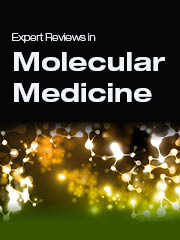Crossref Citations
This article has been cited by the following publications. This list is generated based on data provided by
Crossref.
Brigger, Irène
Dubernet, Catherine
and
Couvreur, Patrick
2002.
Nanoparticles in cancer therapy and diagnosis.
Advanced Drug Delivery Reviews,
Vol. 54,
Issue. 5,
p.
631.
Feng, Si-Shen
and
Chien, Shu
2003.
Chemotherapeutic engineering: Application and further development of chemical engineering principles for chemotherapy of cancer and other diseases.
Chemical Engineering Science,
Vol. 58,
Issue. 18,
p.
4087.
Brigger, Irène
Dubernet, Catherine
and
Couvreur, Patrick
2012.
Nanoparticles in cancer therapy and diagnosis.
Advanced Drug Delivery Reviews,
Vol. 64,
Issue. ,
p.
24.
Chernenko, Tatyana
Milane, Lara
Matthäus, Christian
Diem, Max
and
Amiji, Mansoor
2013.
Drug Delivery Applications of Noninvasive Imaging.
p.
70.
Movassaghian, Sara
and
Torchilin, Vladimir P.
2015.
Novel Approaches and Strategies for Biologics, Vaccines and Cancer Therapies.
p.
433.
Hauser-Kawaguchi, Alexandra M. N.
and
Luyt, Leonard G.
2015.
Genomic Instability and Cancer Metastasis.
Vol. 20,
Issue. ,
p.
205.
Kue, Chin S.
Kamkaew, Anyanee
Burgess, Kevin
Kiew, Lik V.
Chung, Lip Y.
and
Lee, Hong B.
2016.
Small Molecules for Active Targeting in Cancer.
Medicinal Research Reviews,
Vol. 36,
Issue. 3,
p.
494.
Yasmin, Rehana
Shah, Mohsin
Khan, Saeed Ahmad
and
Ali, Roshan
2017.
Gelatin nanoparticles: a potential candidate for medical applications.
Nanotechnology Reviews,
Vol. 6,
Issue. 2,
p.
191.
Hasan, Md. Mehedi
Chisty, Adib H.
Rahman, Mohammed Mizanur
and
Khan, M. Nuruzzaman
2020.
Interpenetrating Polymer Network: Biomedical Applications.
p.
183.
Ahmad, Touqeer
Sarwar, Rizwana
Iqbal, Ayesha
Bashir, Uzma
Farooq, Umar
Halim, Sobia Ahsan
Khan, Ajmal
and
Al-Harrasi, Ahmed
2020.
Recent Advances in Combinatorial Cancer Therapy Via Multifunctionalized Gold Nanoparticles.
Nanomedicine,
Vol. 15,
Issue. 12,
p.
1221.
Chattha, Ghulam Muhayyudin
Arshad, Shumaila
Kamal, Yousaf
Chattha, Muhammad Awais
Asim, Mulazim Hussain
Raza, Syed Atif
Mahmood, Arshad
Manzoor, Mobina
Dar, Umair Ikram
and
Arshad, Amina
2023.
Nanorobots: An innovative approach for DNA-based cancer treatment.
Journal of Drug Delivery Science and Technology,
Vol. 80,
Issue. ,
p.
104173.
Pranita Sanjay Dudhe
and
Rutuja Thakare
2024.
Targeted Drug Delivery in Cancer Therapy.
International Journal of Advanced Research in Science, Communication and Technology,
p.
109.
Miyaso, Hidenobu
Yokota, Satoshi
Suga, Kousuke
Hashimoto, Yui
Kouno, Céline
Nagahori, Kenta
Itoh, Masahiro
and
Kitajima, Satoshi
2024.
Histological differences between the central and peripheral areas of the testes of busulfan-administered mice.
The Journal of Toxicological Sciences,
Vol. 49,
Issue. 4,
p.
139.
Sharma, Swati
Rana, Rashmi
Prakash, Prem
and
Ganguly, Nirmal Kumar
2024.
Drug target therapy and emerging clinical relevance of exosomes in meningeal tumors.
Molecular and Cellular Biochemistry,
Vol. 479,
Issue. 1,
p.
127.
Tobeka, Naki
Alven, Sibusiso
and
Aderibigbe, Blessing A.
2025.
Hybrid Polymeric Systems for Biomedical Applications.
p.
217.


